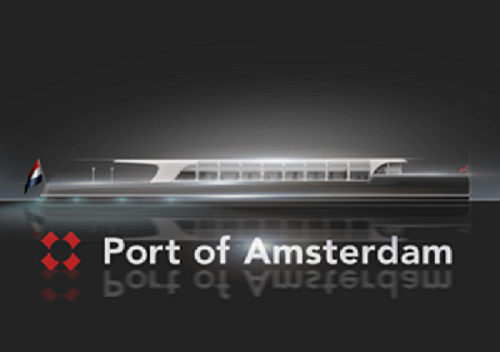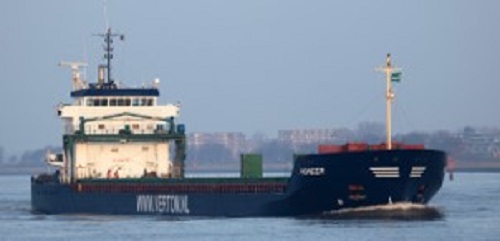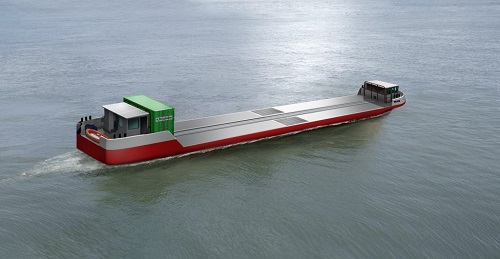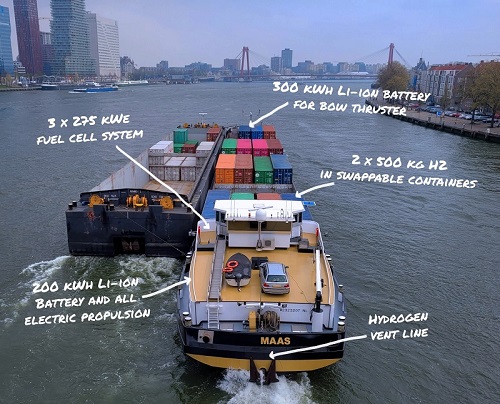The H2SHIPS project organised a seminar on hydrogen solutions for inland and short sea shipping on October 29th in Paris. The event was followed by a lunch cruise on the Seine – and lively, informal discussions between the participants. The presentations of the event are available in the event section here.
The Seminar was opened with a welcome speech by Antoine Berbain, director of HAROPA Ports | Paris.
HAROPA joined the H2SHIPS consortium as one of the first stakeholders. The project helped HAROPA to have a better understanding of regulatory issues related to the use of hydrogen as a fuel in port areas. One of the objectives of HAROPA is to accompany stakeholders from the river sector in the use of alternative fuels. Its role is to support the deployment of a production and distribution infrastructure for hydrogen along the river Seine and to allow for the refuelling of boats. In 2021, HAROPA launched a call for projects dedicated to the installation of refuelling stations for hydrogen and other renewable fuels on 5 sites owned by the port. The results of this call will be announced in early 2022.
The first part of the event focussed on the role of French waterway infrastructure, with two presentations by Joffrey Guyot and Olivier Burel from Voies navigable de France (VNF).
VNF is a public institution. Its main missions are to develop logistics and the transport of goods, and to ensure the management of French waterways and the preservation of biodiversity. VNF set up a subsidy programme called PAMI (“Plan d’aides à la modernisation et à l'innovation de la flotte”) to reduce emissions of pollutants and GHG, to promote innovation, and to accelerate the implementation of more efficient energy systems onboard ships. VNF is currently working on its future subsidy/funding programme which will cover the period 2023-2027 and will have a total budget of 30 million €. Furthermore, VNF is involved in several projects related to digitalisation and the transformation of the vessel fleet operating on French waterways, to improve navigation and drastically reduce GHG emissions in inland shipping.
The second part of the seminar was dedicated to the H2SHIPS project. The session started by a presentation of the Interreg programme NWE by Rebecca Grossberg from the Joint Secretariat Interreg NWE. It was followed by a general presentation of the project by coordinator Christian-Frédéric Berthon from EIFER and a talk on the pilot in the port of Amsterdam by Klaas Visser from the University of Technology Delft.
The Interreg NWE Joint secretariat presented key figures of the current programme. In total, there are 8 hydrogen-related projects (including H2SHIPS) funded under Priority 2 ”Low carbon” (implementation of transnational low carbon solutions in transport systems to reduce GHG-emissions in NWE). The new Interreg NWE programme covering the 2021-2027 period will be launched soon: the first call will open in March 2022 and will focus on 5 priorities. A public draft version of the future Interreg programme can be viewed here.
The lead partner of H2SHIPS, Christian-Frédéric Berthon (EIFER), recalled the main objectives and activities of the H2SHIPS project, which aims at developing a value chain in the region North-West Europe to accelerate the deployment of hydrogen as a fuel for inland and short sea shipping. Technical studies and pilots are performed to see what the most appropriate technologies are, and training materials are developed to support capacity building. Another objective of H2SHIPS is to contribute to the development of a favourable regulatory framework to ease the approval process of new ships and support ports and ship operators who want to shift from fossil fuel to hydrogen-based systems.
Klaas Visser (TU Delft) explained that the Dutch partners of the port of Amsterdam (PoA) opted for NaBH4 (also called sodium borohydride) because this energy carrier is stable and safe under atmospheric conditions, a key advantage compared to liquefied and compressed hydrogen. Sodium borohydride will be transformed into hydrogen by mixing it with pure water. Hydrogen will then be used as fuel onboard a newly built port vessel (see picture below) owned by PoA which will be battery-electric and have a fuel cell system as range extender. The port vessel which will be built in 2022 will sail in the Amsterdam urban and port area starting 2023.




